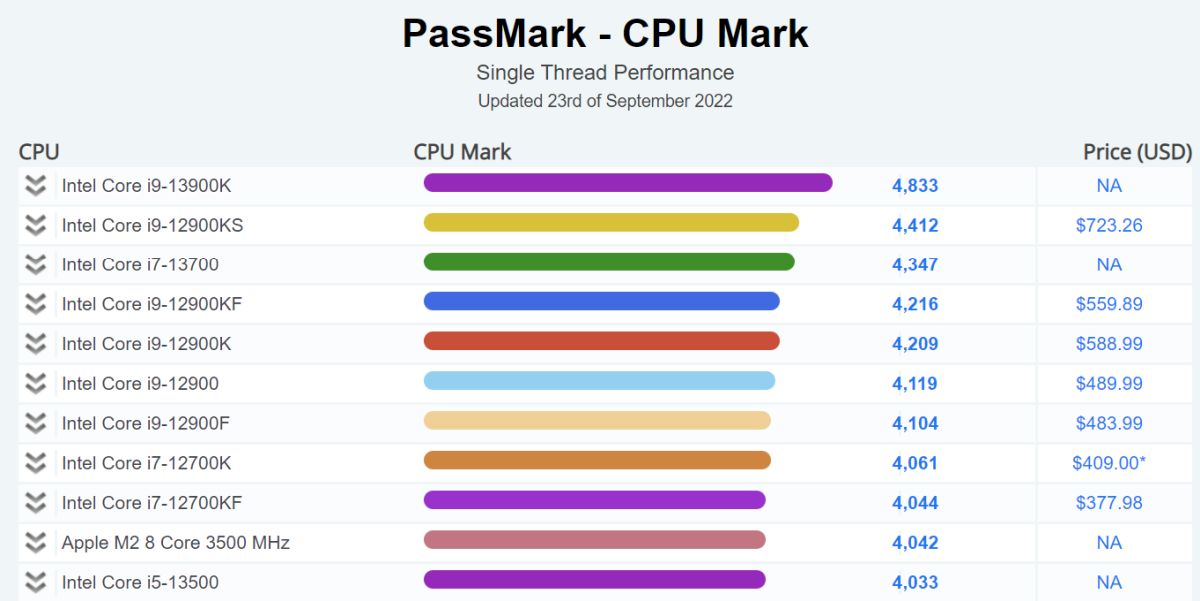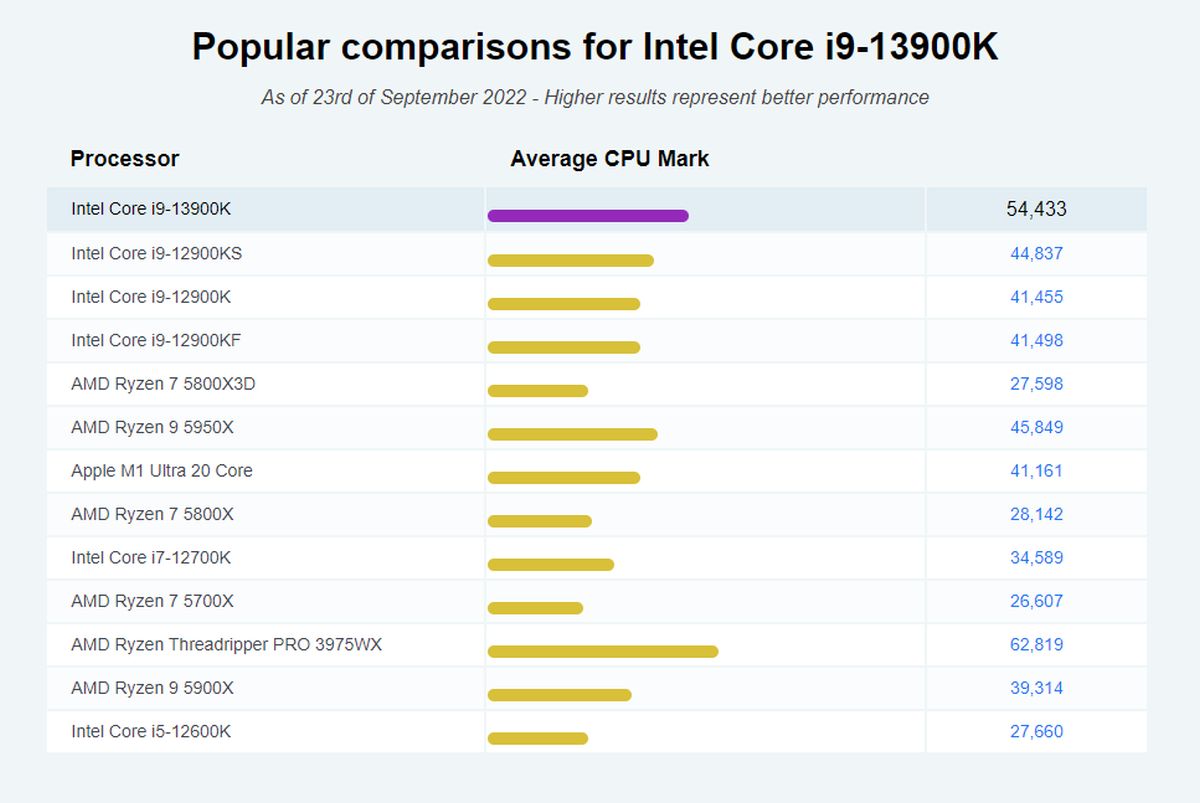That performance data of the 13900K was spotted on the PassMark benchmark page, where it is shown to be dominating force in the software’s single-threaded rating, followed by Apple’s M1 Max and M1 Pro processors. Specifically, the CPU scored 4833 points, which is approximately 10% faster than Intel’s current Alder Lake king-of-the-hill, the Core i9-12900KS.
— APISAK (@TUM_APISAK) September 23, 2022 In another comparison, the 13900K’s average CPU mark is listed at 54433 points, beating both the 12900KS and the AMD Ryzen 9 5950X. To look at this from another light, it’s actually on par with AMD’s own HEDT Ryzen Threadripper 3960X and Threadripper PRO 5955WX. On a related note, the 13900K’s list also shows the single-threaded performance scores of the two other Raptor Lake CPUs, the Core i7-13700 and Core i5-13500. Stating the obvious, both these CPUs are the non-K variants of the series but as you can see, the former CPU seems to overtake both the 12900KF (the one without integrated GPU cores) and 12900K. While the 13500 sits squarely at the bottom of the list. Beyond that, the PassMark page contains data that we more or less already know about the Core i9-13900K, thanks on no small part to Intel’s own blunder. On paper, we can expect it to ship out with a 24-cores, 32-threads configuration, with eight of them being P-Cores and the remaining 16 being E-Cores. Additionally, the CPU is expected to have a boost clock of 5.8GHz, which is 100MHz faster than AMD’s own top-tier Ryzen 7000 series offering, the Ryzen 9 7950X. Oh, and the CPU will have a TDP of 125W, but can throttle up to 250W when it needs to. (Source: PassMark, Videocardz)

